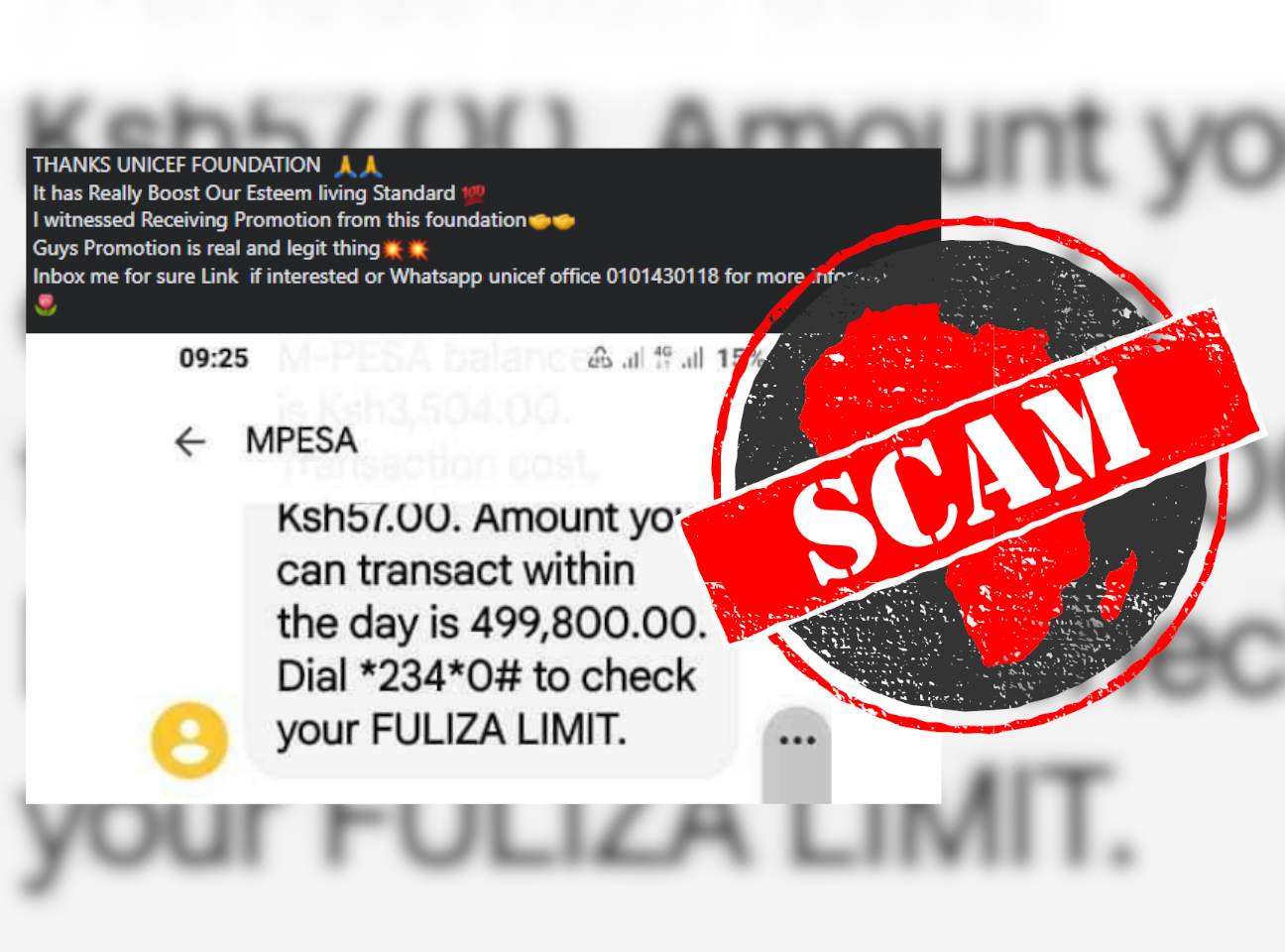IN SHORT: Unicef, the UN agency responsible for children, has issued a scam alert about this fake “promotion” circulating in Kenya, Uganda and Tanzania from a non-existent “Unicef Foundation”.
Posts on Facebook show screengrabs of mobile money transaction text messages. These are presented as proof that the United Nations Children's Fund, or Unicef, is giving out cash in a promotion.
Similar posts published in February 2024 showed screenshots of similar messages but listing payments in Kenyan shilling (KSh), Ugandan shilling (UGX) and Tanzanian shilling (TSh).
Nearly all the captions thanked the “Unicef Foundation” for sending the money, and included other screengrabs of WhatsApp messages, apparently from people claiming to have received different amounts via mobile money services.
The posts say the money is from slightly differently named entities, including “Unicef Federation Funds”, “Unicef Funds Grants Organisation” and even “Unicef Foundation Promotion”.
The messages were posted here, here, here, here, here, here, here and here.
All the posts ask users to “inbox” for more information and include a WhatsApp link or a mobile phone number, apparently for the “Unicef office”.
But is any of this legit? We checked.

‘Unicef is not running a promotion’
A quick look at the Unicef websites in Kenya, Tanzania and Uganda did not yield any news of any cash promotion.
Africa Check contacted Unicef Kenya and communications specialist Dan Oloo told us it was a “fake promotion”.
“Unicef Kenya is aware of a fake promotion being circulated on social media. The scam falsely promises payment to users who participate in a survey,” he said.
“Please be advised that this is not an actual Unicef activity and should be ignored. Do not share personal information or make payments in response to this fake promotion."
Republish our content for free
For publishers: what to do if your post is rated false
A fact-checker has rated your Facebook or Instagram post as “false”, “altered”, “partly false” or “missing context”. This could have serious consequences. What do you do?
Click on our guide for the steps you should follow.
Publishers guideAfrica Check teams up with Facebook
Africa Check is a partner in Meta's third-party fact-checking programme to help stop the spread of false information on social media.
The content we rate as “false” will be downgraded on Facebook and Instagram. This means fewer people will see it.
You can also help identify false information on Facebook. This guide explains how.




Add new comment